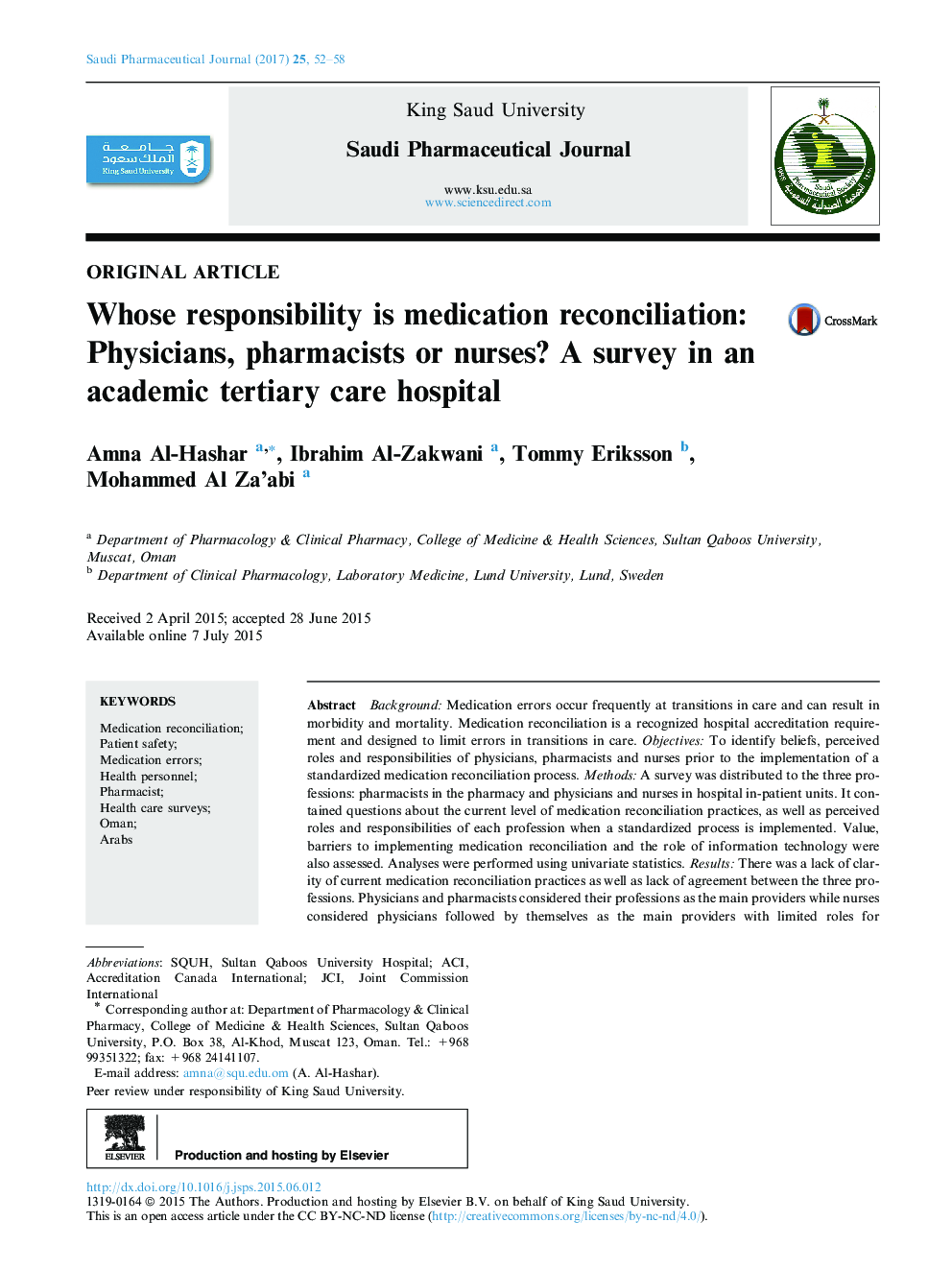| کد مقاله | کد نشریه | سال انتشار | مقاله انگلیسی | نسخه تمام متن |
|---|---|---|---|---|
| 5551458 | 1402949 | 2017 | 7 صفحه PDF | دانلود رایگان |
Background: Medication errors occur frequently at transitions in care and can result in morbidity and mortality. Medication reconciliation is a recognized hospital accreditation requirement and designed to limit errors in transitions in care. Objectives: To identify beliefs, perceived roles and responsibilities of physicians, pharmacists and nurses prior to the implementation of a standardized medication reconciliation process. Methods: A survey was distributed to the three professions: pharmacists in the pharmacy and physicians and nurses in hospital in-patient units. It contained questions about the current level of medication reconciliation practices, as well as perceived roles and responsibilities of each profession when a standardized process is implemented. Value, barriers to implementing medication reconciliation and the role of information technology were also assessed. Analyses were performed using univariate statistics. Results: There was a lack of clarity of current medication reconciliation practices as well as lack of agreement between the three professions. Physicians and pharmacists considered their professions as the main providers while nurses considered physicians followed by themselves as the main providers with limited roles for pharmacists. The three professions recognize the values and benefits of medication reconciliation yet pharmacists, more than others, stated limited time to implement reconciliation is a major barrier. Obstacles such as unreliable sources of medication history, patient knowledge and lack of coordination and communication between the three professions were expressed. Conclusions: The three health care professions recognize the value of medication reconciliation and want to see it implemented in the hospital, yet there is a lack of agreement with regard to roles and responsibilities of each profession within the process. This needs to be addressed by the hospital administration to design clear procedures and defined roles for each profession within a standardized medication reconciliation process.
Journal: Saudi Pharmaceutical Journal - Volume 25, Issue 1, January 2017, Pages 52-58
